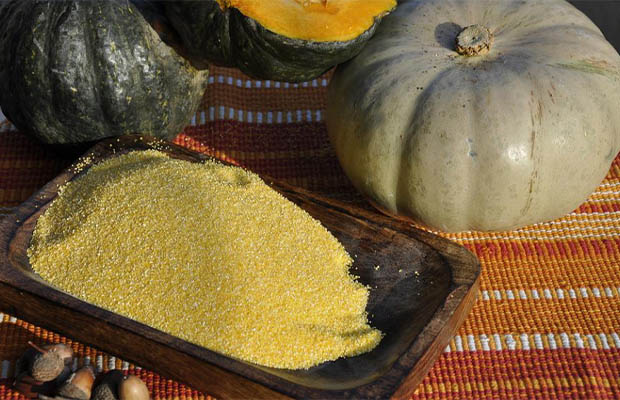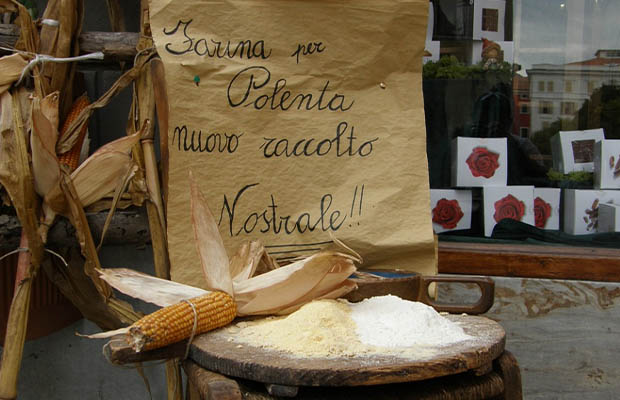You chose to experiment with a recipe that required cornmeal, if I may hazard a guess. That was possibly corn porridge, cornbread, or corn muffins. It came out all right, but you obviously don’t eat it every day.
And now, a few months later, you discovered the open bag of cornmeal in storage and are unsure if it is still safe to use.
How long does cornmeal last? The precise response is highly dependent on the storage circumstances; to extend the shelf life of regular cornmeal, store it in a cool, dry area.
How long does cornmeal last at room temperature? Regular cornmeal can typically be kept at room temperature for 12 months while being properly stored and maintained. Continue reading and you will learn more!
Table of Contents
Will Cornmeal Go Bad?
Cornmeal spoils just like almost all food products do. Cornmeal should be thrown away when:
- Within the package are some insects. Insect eggs, live insects, or both are included.
- There is either mold or substantial wet clumps. Within a few days, mold will appear if moisture got into the cornmeal.
- a taste or odor of rancidity. This one mainly applies to whole-grain cornmeal because it has a higher oil content than determined cornmeal.
- Odd/funny aroma. Make sure it passes the sniff test, just like with pretty much any other food.
Please be aware that some grey or black specks are common in whole-grain cornmeal and are in no way a sign of spoilage.
Not to mention, cornmeal’s quality gradually deteriorates. In other words, it gradually loses some of its corn flavors, so a product that is a few years old won’t be as good as a fresh one. The whole grain version deteriorates more quickly once more.

How Long Does Cornmeal Last?
The best-by date is printed on the label of each variety of cornmeal. That timeframe is an estimate of how long the powder will maintain its quality rather than an expiration date. And, as you might anticipate, cornmeal can be successfully stored after its expiration date.
You ask how much time precisely. Although it’s hard to say, I’ve provided some estimates that I hope will be helpful:
- Degerminated cornmeal should keep well at room temperature for several months, up to a year, or even longer. If two years is still not enough time, you can store it in the freezer.
- If you store whole-grain cornmeal in the fridge or freezer after opening, it should retain its quality for a few months, possibly even a full year.
Let’s now discuss how long this flour substitute should be stored after that.
Which Cornmeal Type Lasts The Longest?
Cornmeal is simply ground-up dried corn kernels, according to the definition. In accordance with its fineness and whether it has been bolted or not, cornmeal is then classified into different types. Bolted cornflour generally has the longest shelf life.
Bolted Vs. Unbolted Cornmeal
Bolted cornmeal: (aka determined cornmeal) means the ground corn kernels went through a sieve. Pieces of the hull and germ, both of which contain oils, are eliminated by the sieve.
Unbolted cornmeal: (also called water-ground, stone-ground, or old-fashioned) will still contain hull and germ.
Today, bolted corn flour makes up almost the entirety of commercially available corn flour.
Unbolted cornmeal is better for you when nutrition is your top priority. However, unbolted cornmeal’s oils will cause it to quickly turn rancid.
It takes time for something to become rancid: the cornmeal will gradually start tasting bitter and stale. After six months, it might still be safe to eat, but it won’t be enjoyable.
Grind Fineness
When a grain is finely ground, a larger portion of its surface is exposed to oxygen, which causes it to spoil more quickly. Accordingly, you might anticipate that whole corn kernels will last the longest, followed by grits, polenta, and cornflour.
With cornmeal, though, this isn’t always the case. The explanation for this is that coarsely ground cornmeal frequently still has oil-rich pieces of the hull and germ in it. Grits will still spoil more quickly than corn flour despite having less surface area because of the additional oils.
How To Store Cornmeal?
Freezer
Shelf Life: Indefinitely
Cornmeal is best kept in the freezer. This way it will go on forever. But be careful when taking cornmeal out of the freezer: moisture will start to form in the bag. The moisture-filled areas can quickly turn the cornmeal moldy.
Air-tight Containers
Shelf Life: 1-2 years
Cornmeal’s shelf life can be extended by storing it in airtight containers like mason jars or high-quality plastic containers. The container will stop oxygenation and aid in keeping out pests (moths, in particular, love cornmeal).
As long as the temperature and humidity are low, cornmeal can even last for several years in this condition. Ensure that the containers are kept far from heat sources, such as stoves and water heaters.
Keep in mind that when you purchase cornmeal, pest eggs can sometimes already be present. You’ll see their larvae crawling around inside the container when they hatch in a few weeks or months. Explore the topic of pantry pest prevention.
Oxygen Absorbers
Shelf Life: 5-10+ years
Little iron packets called oxygen absorbers are used to capture oxygen molecules. An oxygen-free storage environment is created when you store an OA in a closed, airtight container. Because oxidation cannot happen, the food will last longer. The absence of oxygen prevents the growth of mold, bacteria, and pests, keeping the cornmeal safe for consumption.
Mason jars and even some food-grade buckets can use oxygen absorbers. Nevertheless, Mylar bags are typically regarded as the most dependable for long-term food storage.
Read More: How Long Does Vacuum-sealed Food Last?

